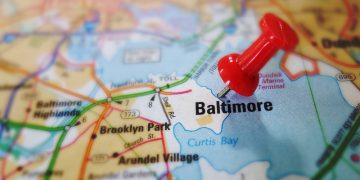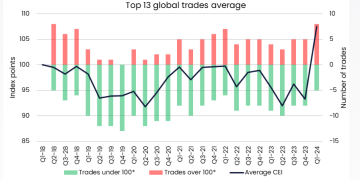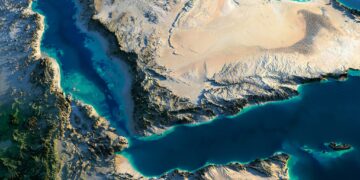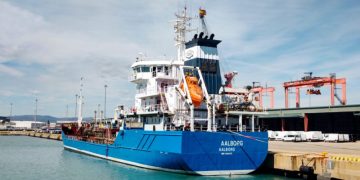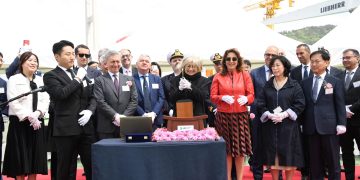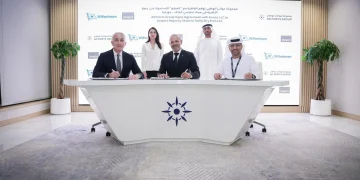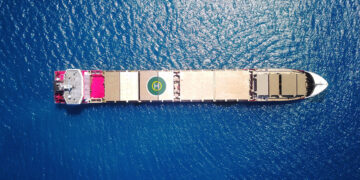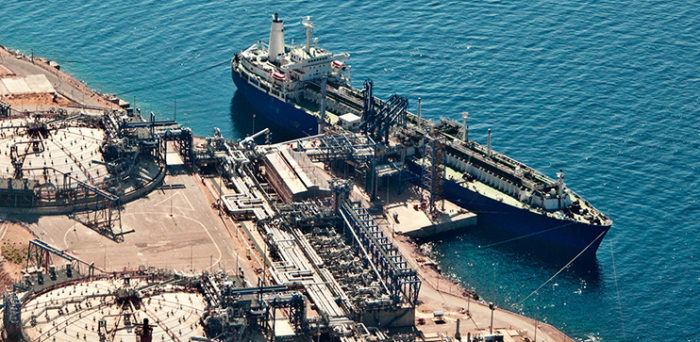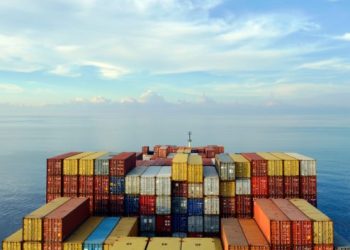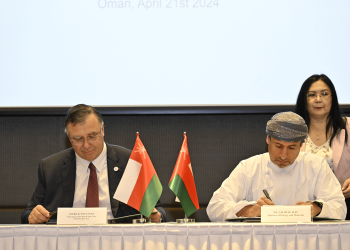The US Maritime Administration announced the availability of a report that quantifies methane slip and fugitive emissions from using liquefied natural gas (LNG) for vessel operations and bunkering. The study, completed in partnership with the University of Delaware and the Rochester Institute of Technology, builds upon earlier work identifying life cycle emissions associated with LNG use using a “well-to-hull” analysis.
The study was designed to provide information guide innovation investments in reducing methane slip and release in the maritime propulsion context. A key finding is that fugitive methane emissions from bunkering operations pose a potentially greater source of methane release than methane slip at the engine
This research evaluates emissions associated with the use of liquefied natural gas (LNG) for marine transportation. In particular, this research focuses on the scope and scale of methane slip and methane leakage during dockside fuel bunkering and use. The research explores how LNG vessels perform on a net greenhouse gas (GHG) basis vis-à-vis conventional fuels under various bunkering leakage and slip assumptions.
Using best available data, this study applies a total fuel cycle analysis methodology using the latest version of the Total Energy and Emissions Analysis in Marine Systems (TEAMS) model to evaluate “wellto-hull” emissions for vessel operations. TEAMS allows emissions analysis along the entire fuel pathway, including extraction, processing, distribution, and use of natural gas fuels in vessels. Until this project, all available total fuel cycle models treat generically the port-based, fuel transfer, and shipboard processes for natural gas fuels.
This work advances the state of knowledge for these critical stages of fuel cycle processes. The work also directly informs maritime stakeholders about ways to manage, mitigate, or minimize potential releases of greenhouse gases related to bunkering operations for natural gas fuels.
Conclusions
The primary research question which was investigated in this study was: How does methane leakage and methane slip affect net GHG impacts for LNG fueled marine vessels using a total fuel cycle analysis approach. This research complements previous work related to TFCA analysis of LNG systems, including the development of modeling tools (such as TEAMS).
There are two key findings that emerge from this research:
- The first is that methane slip is a very important factor that can determine whether LNG systems will lead to GHG emissions reduction or increases compared to conventional fuels. In the case of compression ignited LNG systems, methane slip is well controlled, and this research shows clear GHG emissions advantages compared to conventional fuel (even when routine bunkering leakage assumptions are loosened). However, in the case of spark ignited LNG systems, methane slip is more significant, and can actually negate the advantages of the LNG system. In the spark ignited cases, emissions from the LNG system were higher even in cases where no bunkering leakages were assumed.
- The second important finding is that routine bunkering leakages can have a disproportionate impact on overall GHG emissions due to the high volume of natural gas throughput and the high global warming potential of methane. This research shows that even small bunkering leakages can have significant effects. For example, a ~1% leakage of methane in bunkering operations led to a ~10% increase in net GHG emissions. In the compression ignition engine, this 1% bunkering leakage cut the net GHG emissions advantages of LNG from -14.9% benefit down to a -6.7% benefit compared to low-sulfur diesel
fuel. What is important to note is that leakage reductions in frequently recurring bunkering processes have substantial benefits on total fuel cycle GHG impacts; moreover, there exist several places in the bunkering process where leakage can be reduced and these require additional research and/or testing to improve upon the available literature. Although the economic value of this loss may not be significant (based on natural gas prices modeled), the environmental opportunity costs are important
Further information may be found by reading the study below:
Source: US MARAD




